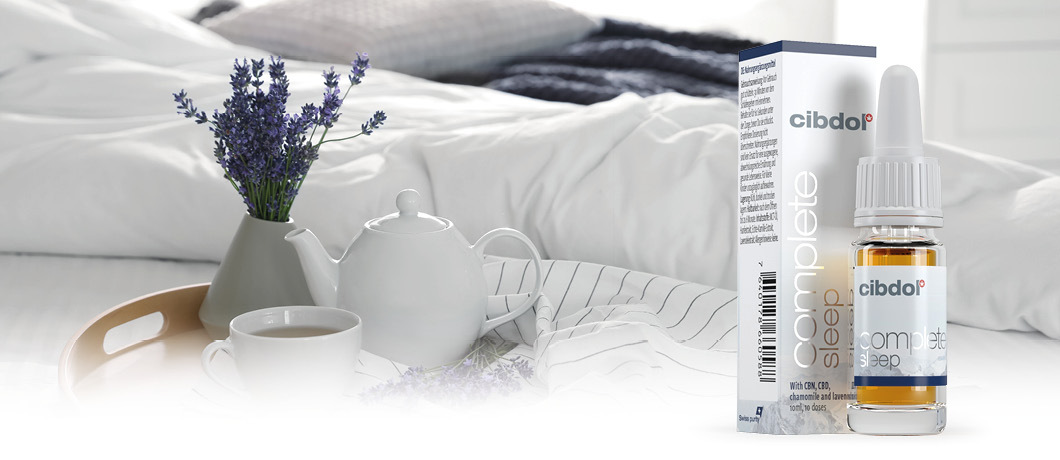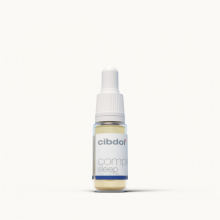Contents:
Everything You Need To Know About Lavender

Keep reading to discover the origins of lavender, its use as a holistic supplement, and what scientists say about its potential benefits to the mind and body. There’s a lot more to this aromatic herb than meets the eye.
What is lavender?
Lavender (Lavandula angustifolia) is a herb grown all over the world for its fragrant flowers and essential oil. Comprising roughly 47 different species, the Lavandula genus has a rich and vibrant history (over 2,500 years). But what is it about this aromatic herb that’s caught the attention of so many people?
To begin with, let’s cover some of the plant’s biology. Lavender loves temperate climates, growing naturally across much of Europe, the Mediterranean, and southwest Asia. While its adaptable nature may have contributed to its popularity, the primary appeal of lavender stems from its use in cooking, cosmetics, and holistic practices.
Although its pleasant aroma and vibrant colour are the most attention-grabbing characteristics of lavender, if you take a peek under the hood, beyond those deep purple leaves, lavender possesses a wealth of compounds with vast soothing potential.
What are the possible health benefits of lavender?
Here’s where the true potential of lavender starts to come into view. Inside the plant is an abundance of terpenes, with linalool being the most prevalent. Although ancient cultures didn’t understand the interaction between terpenes and the human body, modern science does. We know now that the body can absorb and use these compounds to trigger various biological effects, hence lavender’s widespread use in holistic practices.
Below represents a snapshot of lavender's potential impact on the body and mind:
• Beneficial for blood pressure and heart rate: A 2017 study[1] examined the effects of inhaled lavender in an open heart surgery ICU. Although the sample only included 40 patients, the research suggests that lavender oil helped stabilise vital signs (blood pressure and heart rate) post-surgery.
• Influencing asthma symptoms: In an animal model of bronchial asthma, inhaled lavender helped to reduce inflammation and mucus in the lungs of rodents. While not a human trial, it points to a promising interaction between lavender and harmful cytokines[2].
• Possible antifungal properties: Linalool and linalyl (terpenes found inside lavender) were found to inhibit germ formation and reduce fungal progression, according to a 2005 study. Even better, those provisional results were backed up by a 2011 research paper[3] that again demonstrates the effect of lavender oil on fungal infections, claiming it to be “highly potent”.
• Could support sensitive skin: Although lavender has been a popular ingredient in skin salves for decades, it wasn't until relatively recently that scientists set about understanding why. A comprehensive review[4] published in 2017 concludes that while specific studies are still lacking, evidence suggests lavender may have a beneficial impact on symptoms of acne, eczema, and skin inflammation.
Lavender can help improve sleep
Of all the potential benefits of lavender, sleep is one of the areas with the most extensive research. Fortunately, it’s also an area that significantly benefits well-being. A good night’s sleep not only gives our body essential downtime, but it leaves us feeling well-rested and mentally ready for the challenges ahead.
Another ICU study[5] documents the effect of lavender oil on patients post-surgery, finding that it “increased quality of sleep and reduced level of anxiety in patients”.
Moreover, a 2009 study[6] aimed to determine the olfactory abilities of lavender in both men and women. Thirty-one healthy sleepers participated in a sleep study, with control groups exposed to the scent of lavender oil as they fell asleep.
Amazingly, “all subjects reported higher vigour in the morning after lavender exposure” and a decrease in the time it took to fall asleep. With the constant pressure of modern living, there are bound to be times when we all need a little help maintaining healthy sleep. Research certainly suggests lavender could be a potent sleep aid, but what’s the best way to take advantage of its soothing properties?
What products contain lavender?
Before you can harness the benefits of lavender for sleep, the plant needs to undergo processing. Manufacturers transform the plant into an essential oil packed full of potent terpenes. The resulting lavender oil is an incredibly common addition to scores of products.
Lavender oil
The beauty of food-grade lavender oil is its versatility. You can apply it to the skin directly or ingest it alongside other natural ingredients. If you’re planning to use lavender topically, we recommend testing it on a small patch of skin first.
Provided the outcome is favourable, you are free to apply a few drops directly to the skin. If the skin is broken or particularly sensitive, add lavender drops to a cotton ball first before dabbing gently. You can also try consuming lavender orally, although it has quite a potent flavour. To help with the taste, try steeping a tablespoon of lavender in a cup of boiling water.
Lavender and CBD
Combining lavender with other natural ingredients, say, our golden-grade CBD, is where the benefits really start to make sense. Lavender's lack of toxicity makes it the ideal partner to CBD, as both compounds work with the body, not against it. This is especially important when addressing sleep, as you’ll want to take supplements as close to bedtime as possible for maximum impact.
Finally, there’s the entourage effect to consider. This unique phenomenon enhances the qualities of cannabinoids and terpenes when they exist in the same formula. If you want to boost the effects of the terpenes found in lavender, what better way than to combine them with our full-spectrum CBD extract?
How to dose lavender
Like many natural supplements, there isn’t really a right or wrong way to dose lavender. The key is finding a threshold that works for you, usually by starting with a low dose and building gradually.
For most people, a good starting point is a single drop of lavender oil applied directly or diluted with a carrier oil. As you become accustomed to its impact, you can increase the dose, one drop at a time.
As for dosing frequency, again, it’s up to you. If you’re using lavender specifically to support healthy sleep, you’ll want to consume it about fifteen minutes before bed. This way, your body will have time to absorb the terpene-rich lavender oil fully.
What are the possible side effects of lavender
After 2,500 years of use, we have a pretty good idea of lavender’s potential side effects. The possibility of side effects is minor, and if you do experience any, they appear mild. Of course, potential side effects differ depending on how you use lavender, so it’s important to keep the following in mind:
• Consumed orally, lavender may cause constipation, headaches, or increased hunger, whereas topical application carries a small risk of irritation, as does inhalation.
Fortunately, potential side effects fade quickly, so if you do experience any adverse effects, simply stop using the supplement or decrease your dose accordingly. As always, if you have any concerns about using lavender or lavender oil, discuss them with your doctor first.
Bottom line: Lavender is a versatile supplement
For many centuries, lavender has been a powerful holistic herb. Now, with a better understanding of the plant’s chemical structure, we know that it is much more than just a herbal aid. Not only could it help address several conditions, but it supports the fundamental functions needed to fall asleep faster and maintain healthy sleep. Combined with the wellness-boosting potential of ingredients such as CBD, lavender can be a fantastic addition to your daily routine.
To put the soothing properties of lavender to the test, why not try Complete Sleep from Cibdol? Or, browse our complete selection of natural sleep products at the Cibdol store. If you still have questions about sleep or practising good sleep hygiene, visit our CBD Encyclopedia for all you need to know.
[1] Salamati, A., Mashouf, S., & Mojab, F. (2017). Effect of Inhalation of Lavender Essential Oil on Vital Signs in Open Heart Surgery ICU. NCBI. https://www.ncbi.nlm.nih.gov/pmc/articles/PMC5423266/ [Source]
[2] Ueno-Iio, T., Shibakura, M., & Yokota, K. (2014). Lavender essential oil inhalation suppresses allergic airway inflammation and mucous cell hyperplasia in a murine model of asthma. ScienceDirect. https://www.sciencedirect.com/science/article/abs/pii/S0024320514005177 [Source]
[3] Society for General Microbiology. (2011). Lavender oil has potent antifungal effect. ScienceDaily. https://www.sciencedaily.com/releases/2011/02/110214201842.htm [Source]
[4] Orchard, A., & van Vuuren, S. (2017). Commercial Essential Oils as Potential Antimicrobials to Treat Skin Diseases. Hindawi. https://www.hindawi.com/journals/ecam/2017/4517971/ [Source]
[5] Karadag, E., Samancioglu, S., & Ozden, D. (2015). Effects of aromatherapy on sleep quality and anxiety of patients. Wiley Online Library. https://onlinelibrary.wiley.com/doi/abs/10.1111/nicc.12198 [Source]
[6] Goel, N., Kim, H., & Lao, R. P. (2005). An Olfactory Stimulus Modifies Nighttime Sleep in Young Men and Women. Taylor & Francis Online. https://www.tandfonline.com/doi/abs/10.1080/07420520500263276 [Source]
[1] Salamati, A., Mashouf, S., & Mojab, F. (2017). Effect of Inhalation of Lavender Essential Oil on Vital Signs in Open Heart Surgery ICU. NCBI. https://www.ncbi.nlm.nih.gov/pmc/articles/PMC5423266/ [Source]
[2] Ueno-Iio, T., Shibakura, M., & Yokota, K. (2014). Lavender essential oil inhalation suppresses allergic airway inflammation and mucous cell hyperplasia in a murine model of asthma. ScienceDirect. https://www.sciencedirect.com/science/article/abs/pii/S0024320514005177 [Source]
[3] Society for General Microbiology. (2011). Lavender oil has potent antifungal effect. ScienceDaily. https://www.sciencedaily.com/releases/2011/02/110214201842.htm [Source]
[4] Orchard, A., & van Vuuren, S. (2017). Commercial Essential Oils as Potential Antimicrobials to Treat Skin Diseases. Hindawi. https://www.hindawi.com/journals/ecam/2017/4517971/ [Source]
[5] Karadag, E., Samancioglu, S., & Ozden, D. (2015). Effects of aromatherapy on sleep quality and anxiety of patients. Wiley Online Library. https://onlinelibrary.wiley.com/doi/abs/10.1111/nicc.12198 [Source]
[6] Goel, N., Kim, H., & Lao, R. P. (2005). An Olfactory Stimulus Modifies Nighttime Sleep in Young Men and Women. Taylor & Francis Online. https://www.tandfonline.com/doi/abs/10.1080/07420520500263276 [Source]













